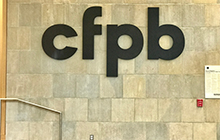 On July 26, 2023, the Consumer Financial Protection Bureau (CFPB) released a Supervisory Highlights report covering findings from its examinations completed between July 2022 and March 2023 (the Report), which found, among other violations, several instances of unfair, deceptive, and abusive acts or practices related to auto lending, and illegal collection of medical debt and debt on payday loans. The Report’s attention to medical debt collection practices is consistent with the CFPB’s related efforts to investigate medical financing products and medical debt, previously covered here and here by Consumer Financial Insights.
On July 26, 2023, the Consumer Financial Protection Bureau (CFPB) released a Supervisory Highlights report covering findings from its examinations completed between July 2022 and March 2023 (the Report), which found, among other violations, several instances of unfair, deceptive, and abusive acts or practices related to auto lending, and illegal collection of medical debt and debt on payday loans. The Report’s attention to medical debt collection practices is consistent with the CFPB’s related efforts to investigate medical financing products and medical debt, previously covered here and here by Consumer Financial Insights.
With respect to auto lending, the Report highlights at least four discrete unfair or abusive acts or practices:
- Misleading consumers in marketing materials by displaying pictures of cars that were “significantly larger, more expensive, and newer” than the cars the consumers were eligible for under the terms of the advertised auto loan offer (Report at 4);
- Charging interest on auto loans based on representations by dealers that the vehicle had options and enhancements that it did not actually have, which “artificially inflates the value of the collateral” (id. at 5-6);
- Failing to sufficiently notify consumers that the final payment of their auto loans had to be made manually to close out the loan, and cancelling the consumers’ automatic payments, leading to unavoidable late fees (id. at 6-7); and
- After repossession of a vehicle, accelerating and requiring payments from the consumer on his or her unrelated debts – such as credit card debt – before allowing the consumer to reclaim the vehicle (id. at 7-8).
With respect to debt collection, the Report highlights the following violations, among others:
- Continuing collection attempts for work-related medical debt “after receiving sufficient information to render the debt uncollectible under state worker’s compensation law” (id. at 12-13);
- Advising consumers “that if they paid the balance in full by a date certain, any interest assessed on the debt would be reversed,” but “then fail[ing] to credit the consumers’ accounts with the accrued additional interest, resulting in the consumers paying more than the agreed upon amount” (id. at 13);
- “[I]ncluding language in [payday] loan agreements purporting to prohibit consumers from revoking their consent for the lender to call, text, or e-mail the consumers” about collection on the outstanding balance (id. at 26); and
- Making false collection threats, including by “sending demand notices to consumers’ employers that incorrectly conveyed that the employer was required to remit to the lenders from the consumer’s wages the full amount of the consumer’s loan balance” (id. at 26-27).
The Report makes clear that auto lenders and servicers, and entities involved in the collection of debt, should review the CFPB’s findings and implement changes to avoid the violations the Report describes.
